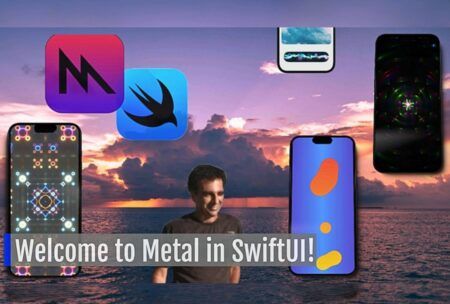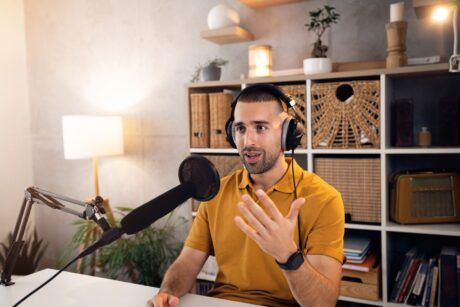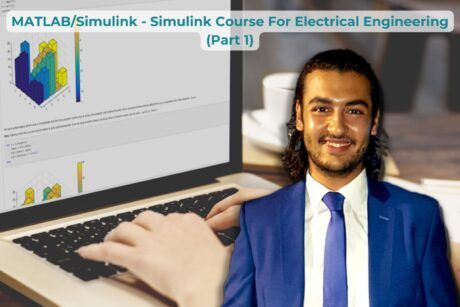Enhance your skills with this SwiftUI course, focusing on Metal Shading Language. Learn how to build stunning effects for your iOS apps. Read more.
Buy this course for $199 $10
and keep lifetime access.
Access all courses in our library for only $9/month with All Access Pass
About This Course
Who this course is for:
- Developers with foundational knowledge of SwiftUI looking to advance their skills with intermediate concepts, particularly in the Metal Shading Language.
- Anyone eager to explore how Metal can elevate their SwiftUI projects with advanced visual effects.
No prior experience with Metal is necessary—we provide step-by-step guidance tailored to learners of all levels.
What you’ll learn:
- Master Key Metal Shading Language Techniques: Gain expertise in essential instance methods such as colorEffect, distortEffect, and layerEffect.
- Design Eye-Catching Visual Effects: Create dynamic visuals like lava lamp simulations, fluid wave animations, and realistic fire effects using Perlin noise.
- Seamlessly Integrate Metal into SwiftUI: Develop practical, reusable solutions for integrating Metal techniques into your projects.
- Collaborate and Grow with a Peer Community: Join a vibrant Discord group of learners and professionals to share ideas, get feedback, and tackle challenges together.
Requirements:
- A basic understanding of SwiftUI.
- A strong desire to create visually stunning apps.
Software version used in the course:
- SwiftUI 5 and 6
Why Choose This SwiftUI Online Course?
This course offers a practical and project-based approach to mastering the Metal Shading Language (MSL). Whether you’re an experienced developer or just starting, our lessons are structured to ensure you understand and apply these skills confidently.
What Sets This Course Apart:
- Proven Expertise: Our instructors bring a wealth of knowledge in SwiftUI and Metal, with real-world development experience.
- Hands-On Projects: From crafting a mesmerizing lava lamp effect to building dynamic wave animations, you’ll work on engaging, real-world projects.
- Comprehensive Resources: Learn to convert GLSL to Metal, empowering you to leverage existing skills and resources.
- Community Support: With access to an active Discord group, you’ll join a supportive network of learners and professionals who can guide and inspire you.
Course Highlights:
- Beginner-Friendly Metal Lessons: Break down complex MSL concepts into straightforward, hands-on examples in SwiftUI.
- Realistic Visual Effects: Harness Perlin noise and Fractal Brownian Motion to design textures that bring your apps to life.
- Practical Code Snippets: Access ready-to-use snippets and integrate them directly into your projects.
- Compare Metal with GLSL: Understand the strengths and differences of these shading languages to broaden your knowledge base.
Take the Next Step in App Development:
With this course, you’ll go beyond the basics of SwiftUI and explore the limitless possibilities of Metal. Dive in today to transform your app development skills and create something extraordinary.
Happy Coding!
Shape your future. My courses can be your roadmap – learn more now!
Our Promise to You
By the end of this SwiftUI course, you’ll have the skills to create visually stunning and interactive apps that stand out in today’s competitive market. Whether you’re coding for fun or aiming to launch professional-grade apps, this course equips you with techniques to succeed.
10 Day Money Back Guarantee. If you are unsatisfied for any reason, simply contact us and we’ll give you a full refund. No questions asked.
Get started today!
Course Curriculum
| Section 1 - Introduction | |||
| Introduction | 00:00:00 | ||
| SwiftUI And Metal Elevating Apps With Shader Techniques Resources | 00:00:00 | ||
| Section 2 - Shaders Basics And Color Effect Shaders | |||
| Shaders 101 Project | 00:00:00 | ||
| Shader Signature And Useful Snippets | 00:00:00 | ||
| Custom Parameters | 00:00:00 | ||
| Gray Scale Shaders | 00:00:00 | ||
| Gray Scale Shader View - Part 1 | 00:00:00 | ||
| Gray Scale Shader View - Part 2 | 00:00:00 | ||
| UV Pixel Coordinates | 00:00:00 | ||
| UV Pixel Coordinates Continued | 00:00:00 | ||
| UV Pixel Coordinates And The Image | 00:00:00 | ||
| Resolving Issue: Main Actor-Isolated Property Warning In Swift 6+ | 00:00:00 | ||
| Using The Timeline And Finding One's Center | 00:00:00 | ||
| Completing The "Cool Center Shader" | 00:00:00 | ||
| Incorporating Touch | 00:00:00 | ||
| Let's Swizzle View! | 00:00:00 | ||
| Let's Swizzle Shaders! | 00:00:00 | ||
| Smooth Step Function And Graphing Functions - Part 1 | 00:00:00 | ||
| Smooth Step Function And Graphing Functions - Part 2 | 00:00:00 | ||
| Pcurve Of Inigo Quiles | 00:00:00 | ||
| More Useful Code Snippets | 00:00:00 | ||
| Setting Up The Grainy Effect View | 00:00:00 | ||
| Noise Shader And Grainy Effect | 00:00:00 | ||
| Exercise - Split Red-Blue Shader | 00:00:00 | ||
| Solution - Split Red-Blue Shader | 00:00:00 | ||
| Solution To Challenge! | 00:00:00 | ||
| Section 3 - Creating A Glow Effect | |||
| Getting Started | 00:00:00 | ||
| Step Function And Simplifying The If-Statement | 00:00:00 | ||
| Adding Some Glow | 00:00:00 | ||
| Increasing The Glow Intensity | 00:00:00 | ||
| Section 4 - ShapeStyle Shaders | |||
| ShapeStyle And Shaders - Introduction | 00:00:00 | ||
| Stripes View | 00:00:00 | ||
| Stripes Shader | 00:00:00 | ||
| Section 5 - Distortion Shaders | |||
| Tile Shader | 00:00:00 | ||
| Angle Shader View | 00:00:00 | ||
| Angle Shader | 00:00:00 | ||
| Generic Angle Shader | 00:00:00 | ||
| Section 6 - Inspirational Shader | |||
| Inspirational Shader - Introduction | 00:00:00 | ||
| Setting Up The View And The Shader Parameters | 00:00:00 | ||
| Implementing The Inspirational Shader | 00:00:00 | ||
| Section 7 - Lava Lamp | |||
| Introduction To Lava Lamp | 00:00:00 | ||
| Setting Up The View And Shader | 00:00:00 | ||
| Create Some Blobs | 00:00:00 | ||
| Animate The Blobs | 00:00:00 | ||
| Adding Color To Our Blobs | 00:00:00 | ||
| Adding A Background Centered Gradient | 00:00:00 | ||
| Enhancing Blob Colors | 00:00:00 | ||
| Section 8 - Let's Make Some Voronoi Noise | |||
| Introduction To Voronoi Shaders | 00:00:00 | ||
| Create A Voronoi Shader | 00:00:00 | ||
| Display The Seed Points | 00:00:00 | ||
| Animating The Voronoi Shader | 00:00:00 | ||
| Mixing Adjacent Seed Colors | 00:00:00 | ||
| Section 9 - Example Of Converting The OpenGL Shading Language To The Metal Shading Language | |||
| GLSL To MSL Introduction | 00:00:00 | ||
| GLSL To MSL Example | 00:00:00 | ||
| GLSL To MSL Variation With Mixing | 00:00:00 | ||
| Section 10 - Fractal Brownian Motion | |||
| Setting Up The View | 00:00:00 | ||
| Setting Up The Shader Code | 00:00:00 | ||
| Setting Up The Shader Noise And FBM Function | 00:00:00 | ||
| Fractal Brownian Motion Shader | 00:00:00 | ||
About This Course
Who this course is for:
- Developers with foundational knowledge of SwiftUI looking to advance their skills with intermediate concepts, particularly in the Metal Shading Language.
- Anyone eager to explore how Metal can elevate their SwiftUI projects with advanced visual effects.
No prior experience with Metal is necessary—we provide step-by-step guidance tailored to learners of all levels.
What you’ll learn:
- Master Key Metal Shading Language Techniques: Gain expertise in essential instance methods such as colorEffect, distortEffect, and layerEffect.
- Design Eye-Catching Visual Effects: Create dynamic visuals like lava lamp simulations, fluid wave animations, and realistic fire effects using Perlin noise.
- Seamlessly Integrate Metal into SwiftUI: Develop practical, reusable solutions for integrating Metal techniques into your projects.
- Collaborate and Grow with a Peer Community: Join a vibrant Discord group of learners and professionals to share ideas, get feedback, and tackle challenges together.
Requirements:
- A basic understanding of SwiftUI.
- A strong desire to create visually stunning apps.
Software version used in the course:
- SwiftUI 5 and 6
Why Choose This SwiftUI Online Course?
This course offers a practical and project-based approach to mastering the Metal Shading Language (MSL). Whether you’re an experienced developer or just starting, our lessons are structured to ensure you understand and apply these skills confidently.
What Sets This Course Apart:
- Proven Expertise: Our instructors bring a wealth of knowledge in SwiftUI and Metal, with real-world development experience.
- Hands-On Projects: From crafting a mesmerizing lava lamp effect to building dynamic wave animations, you’ll work on engaging, real-world projects.
- Comprehensive Resources: Learn to convert GLSL to Metal, empowering you to leverage existing skills and resources.
- Community Support: With access to an active Discord group, you’ll join a supportive network of learners and professionals who can guide and inspire you.
Course Highlights:
- Beginner-Friendly Metal Lessons: Break down complex MSL concepts into straightforward, hands-on examples in SwiftUI.
- Realistic Visual Effects: Harness Perlin noise and Fractal Brownian Motion to design textures that bring your apps to life.
- Practical Code Snippets: Access ready-to-use snippets and integrate them directly into your projects.
- Compare Metal with GLSL: Understand the strengths and differences of these shading languages to broaden your knowledge base.
Take the Next Step in App Development:
With this course, you’ll go beyond the basics of SwiftUI and explore the limitless possibilities of Metal. Dive in today to transform your app development skills and create something extraordinary.
Happy Coding!
Shape your future. My courses can be your roadmap – learn more now!
Our Promise to You
By the end of this SwiftUI course, you’ll have the skills to create visually stunning and interactive apps that stand out in today’s competitive market. Whether you’re coding for fun or aiming to launch professional-grade apps, this course equips you with techniques to succeed.
10 Day Money Back Guarantee. If you are unsatisfied for any reason, simply contact us and we’ll give you a full refund. No questions asked.
Get started today!
Course Curriculum
| Section 1 - Introduction | |||
| Introduction | 00:00:00 | ||
| SwiftUI And Metal Elevating Apps With Shader Techniques Resources | 00:00:00 | ||
| Section 2 - Shaders Basics And Color Effect Shaders | |||
| Shaders 101 Project | 00:00:00 | ||
| Shader Signature And Useful Snippets | 00:00:00 | ||
| Custom Parameters | 00:00:00 | ||
| Gray Scale Shaders | 00:00:00 | ||
| Gray Scale Shader View - Part 1 | 00:00:00 | ||
| Gray Scale Shader View - Part 2 | 00:00:00 | ||
| UV Pixel Coordinates | 00:00:00 | ||
| UV Pixel Coordinates Continued | 00:00:00 | ||
| UV Pixel Coordinates And The Image | 00:00:00 | ||
| Resolving Issue: Main Actor-Isolated Property Warning In Swift 6+ | 00:00:00 | ||
| Using The Timeline And Finding One's Center | 00:00:00 | ||
| Completing The "Cool Center Shader" | 00:00:00 | ||
| Incorporating Touch | 00:00:00 | ||
| Let's Swizzle View! | 00:00:00 | ||
| Let's Swizzle Shaders! | 00:00:00 | ||
| Smooth Step Function And Graphing Functions - Part 1 | 00:00:00 | ||
| Smooth Step Function And Graphing Functions - Part 2 | 00:00:00 | ||
| Pcurve Of Inigo Quiles | 00:00:00 | ||
| More Useful Code Snippets | 00:00:00 | ||
| Setting Up The Grainy Effect View | 00:00:00 | ||
| Noise Shader And Grainy Effect | 00:00:00 | ||
| Exercise - Split Red-Blue Shader | 00:00:00 | ||
| Solution - Split Red-Blue Shader | 00:00:00 | ||
| Solution To Challenge! | 00:00:00 | ||
| Section 3 - Creating A Glow Effect | |||
| Getting Started | 00:00:00 | ||
| Step Function And Simplifying The If-Statement | 00:00:00 | ||
| Adding Some Glow | 00:00:00 | ||
| Increasing The Glow Intensity | 00:00:00 | ||
| Section 4 - ShapeStyle Shaders | |||
| ShapeStyle And Shaders - Introduction | 00:00:00 | ||
| Stripes View | 00:00:00 | ||
| Stripes Shader | 00:00:00 | ||
| Section 5 - Distortion Shaders | |||
| Tile Shader | 00:00:00 | ||
| Angle Shader View | 00:00:00 | ||
| Angle Shader | 00:00:00 | ||
| Generic Angle Shader | 00:00:00 | ||
| Section 6 - Inspirational Shader | |||
| Inspirational Shader - Introduction | 00:00:00 | ||
| Setting Up The View And The Shader Parameters | 00:00:00 | ||
| Implementing The Inspirational Shader | 00:00:00 | ||
| Section 7 - Lava Lamp | |||
| Introduction To Lava Lamp | 00:00:00 | ||
| Setting Up The View And Shader | 00:00:00 | ||
| Create Some Blobs | 00:00:00 | ||
| Animate The Blobs | 00:00:00 | ||
| Adding Color To Our Blobs | 00:00:00 | ||
| Adding A Background Centered Gradient | 00:00:00 | ||
| Enhancing Blob Colors | 00:00:00 | ||
| Section 8 - Let's Make Some Voronoi Noise | |||
| Introduction To Voronoi Shaders | 00:00:00 | ||
| Create A Voronoi Shader | 00:00:00 | ||
| Display The Seed Points | 00:00:00 | ||
| Animating The Voronoi Shader | 00:00:00 | ||
| Mixing Adjacent Seed Colors | 00:00:00 | ||
| Section 9 - Example Of Converting The OpenGL Shading Language To The Metal Shading Language | |||
| GLSL To MSL Introduction | 00:00:00 | ||
| GLSL To MSL Example | 00:00:00 | ||
| GLSL To MSL Variation With Mixing | 00:00:00 | ||
| Section 10 - Fractal Brownian Motion | |||
| Setting Up The View | 00:00:00 | ||
| Setting Up The Shader Code | 00:00:00 | ||
| Setting Up The Shader Noise And FBM Function | 00:00:00 | ||
| Fractal Brownian Motion Shader | 00:00:00 | ||



